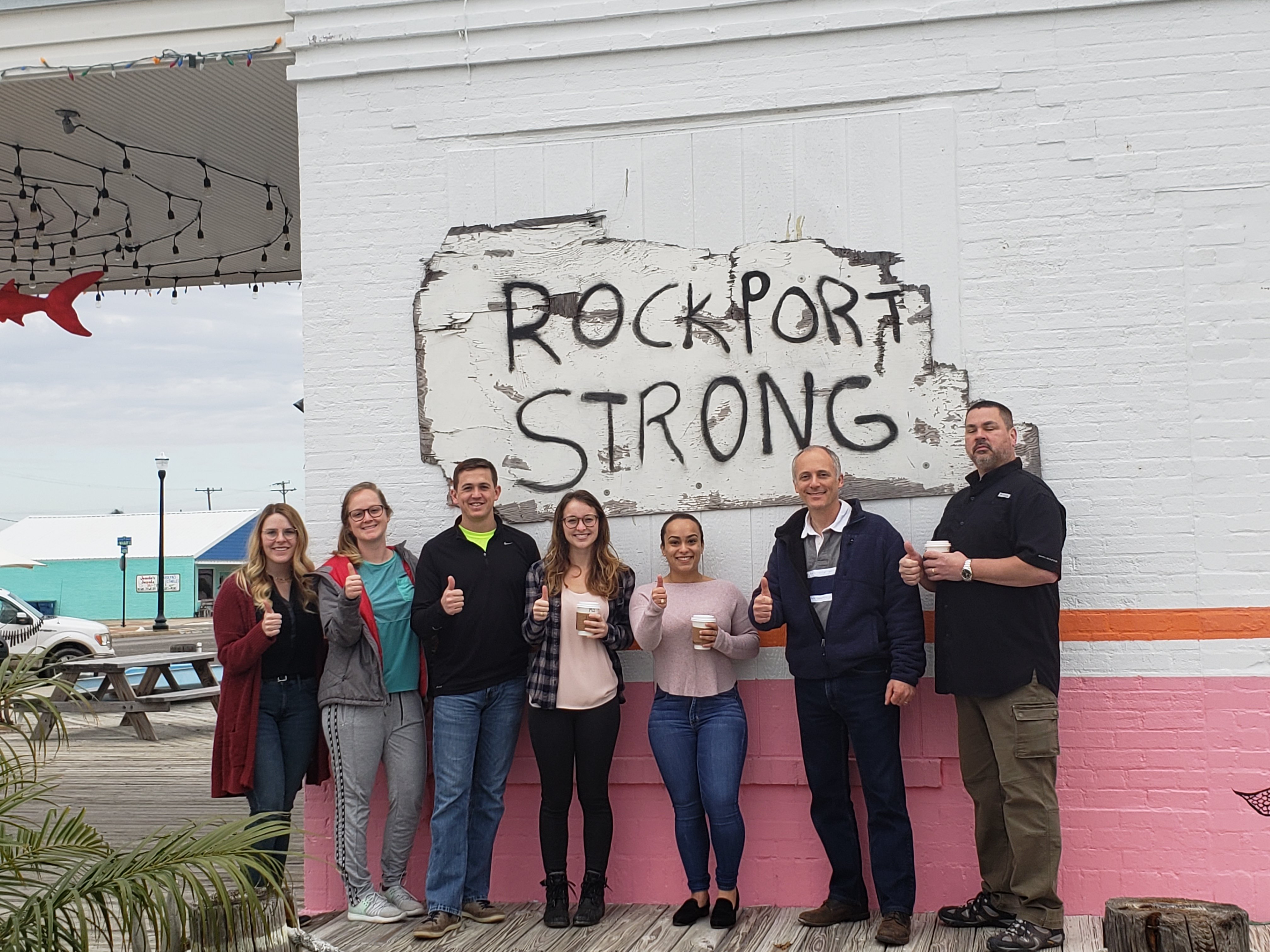 This past spring, second- and third-year, as well as one LL.M., Texas A&M law students again participated in a uniquely experiential Natural Resources Systems Capstone course directed by Professor Gabriel Eckstein. This year, students enrolled in the course developed a legal toolkit and provided policy guidance and recommendations to Texas Target Communities, a Texas A&M program assisting Texas coastal municipalities to respond to flood risks in the wake of the devastation caused by Hurricane Harvey in 2017. View their resulting publication “Legal Mechanisms for Mitigating Flood Impacts in Texas Coastal Communities” at law.tamu.edu/CoastalCommunities.
This past spring, second- and third-year, as well as one LL.M., Texas A&M law students again participated in a uniquely experiential Natural Resources Systems Capstone course directed by Professor Gabriel Eckstein. This year, students enrolled in the course developed a legal toolkit and provided policy guidance and recommendations to Texas Target Communities, a Texas A&M program assisting Texas coastal municipalities to respond to flood risks in the wake of the devastation caused by Hurricane Harvey in 2017. View their resulting publication “Legal Mechanisms for Mitigating Flood Impacts in Texas Coastal Communities” at law.tamu.edu/CoastalCommunities.
This innovative course provided students the opportunity to draft a critical policy advisory report from start to finish, while also providing legal tools for the target audience. As part of that process, students traveled to Rockport, Texas, which was ground zero when Harvey made landfall. During their visit, they toured various seaside, gated and Colonia neighborhoods and witnessed the extent of impact that flooding, sea surges and torrential rains can have on a coastal community. They also met with private landowners, city officials, community associations and the city attorney. The students’ work product outlined tools and mechanisms, and identified potential funding sources, that Texas coastal municipalities could use proactively in preparation for future flooding and storm events.
 Second-year law student Alexis Yelvington, who has a particular interest in environmental and community development, stated, “The capstone course was an invaluable experience to meet individuals from Rockport, learn about their challenges and concerns, and help them develop more resiliency.”
Second-year law student Alexis Yelvington, who has a particular interest in environmental and community development, stated, “The capstone course was an invaluable experience to meet individuals from Rockport, learn about their challenges and concerns, and help them develop more resiliency.”
Now in its third year, the Capstone course seeks to provide students with truly hands-on, practical and real-world experiences in various natural resources law areas. Last year, students in the course worked with the Trinity River Authority to develop guidance pertaining to potential legal liability for dam and reservoir operations that can result from flooding and other weather related events [view the report]. This coming year, students will engage in energy development issues in the Gulf of Mexico under the direction of Professor Guillermo Garcia Sanchez.